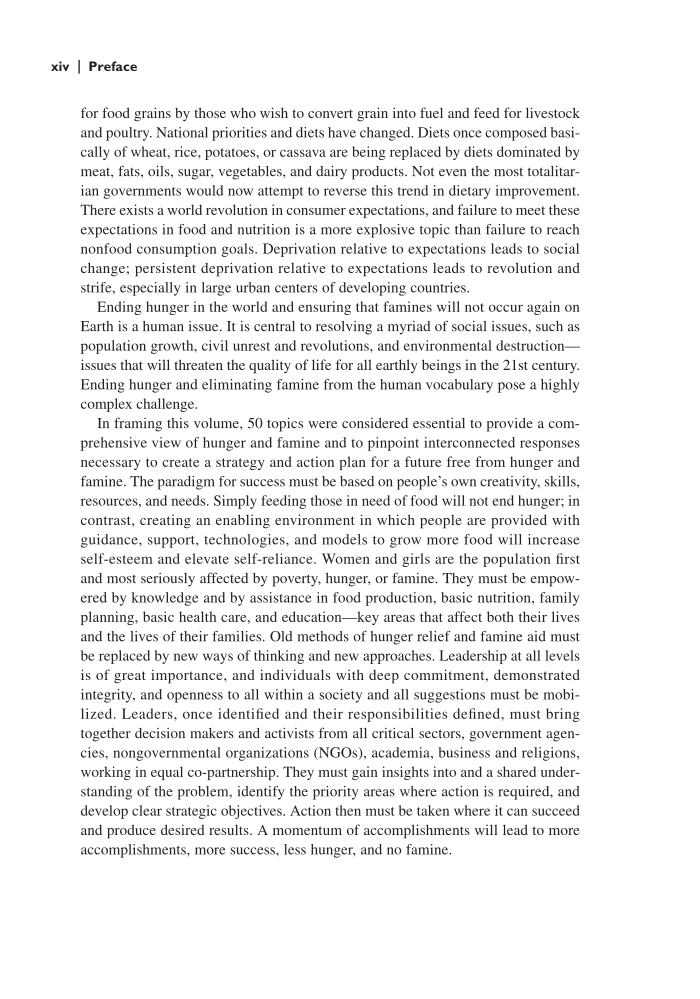for food grains by those who wish to convert grain into fuel and feed for livestock and poultry. National priorities and diets have changed. Diets once composed basi- cally of wheat, rice, potatoes, or cassava are being replaced by diets dominated by meat, fats, oils, sugar, vegetables, and dairy products. Not even the most totalitar- ian governments would now attempt to reverse this trend in dietary improvement. There exists a world revolution in consumer expectations, and failure to meet these expectations in food and nutrition is a more explosive topic than failure to reach nonfood consumption goals. Deprivation relative to expectations leads to social change persistent deprivation relative to expectations leads to revolution and strife, especially in large urban centers of developing countries. Ending hunger in the world and ensuring that famines will not occur again on Earth is a human issue. It is central to resolving a myriad of social issues, such as population growth, civil unrest and revolutions, and environmental destruction— issues that will threaten the quality of life for all earthly beings in the 21st century. Ending hunger and eliminating famine from the human vocabulary pose a highly complex challenge. In framing this volume, 50 topics were considered essential to provide a com- prehensive view of hunger and famine and to pinpoint interconnected responses necessary to create a strategy and action plan for a future free from hunger and famine. The paradigm for success must be based on people’s own creativity, skills, resources, and needs. Simply feeding those in need of food will not end hunger in contrast, creating an enabling environment in which people are provided with guidance, support, technologies, and models to grow more food will increase self-esteem and elevate self-reliance. Women and girls are the population first and most seriously affected by poverty, hunger, or famine. They must be empow- ered by knowledge and by assistance in food production, basic nutrition, family planning, basic health care, and education—key areas that affect both their lives and the lives of their families. Old methods of hunger relief and famine aid must be replaced by new ways of thinking and new approaches. Leadership at all levels is of great importance, and individuals with deep commitment, demonstrated integrity, and openness to all within a society and all suggestions must be mobi- lized. Leaders, once identified and their responsibilities defined, must bring together decision makers and activists from all critical sectors, government agen- cies, nongovernmental organizations (NGOs), academia, business and religions, working in equal co-partnership. They must gain insights into and a shared under- standing of the problem, identify the priority areas where action is required, and develop clear strategic objectives. Action then must be taken where it can succeed and produce desired results. A momentum of accomplishments will lead to more accomplishments, more success, less hunger, and no famine. xiv Preface
Document Details My Account Print multiple pages
Print
You have printed 0 times in the last 24 hours.
Your print count will reset on at .
You may print 0 more time(s) before then.
You may print a maximum of 0 pages at a time.





























































































































































































































































































































































































































































































































































































































































































































































































































































































































































